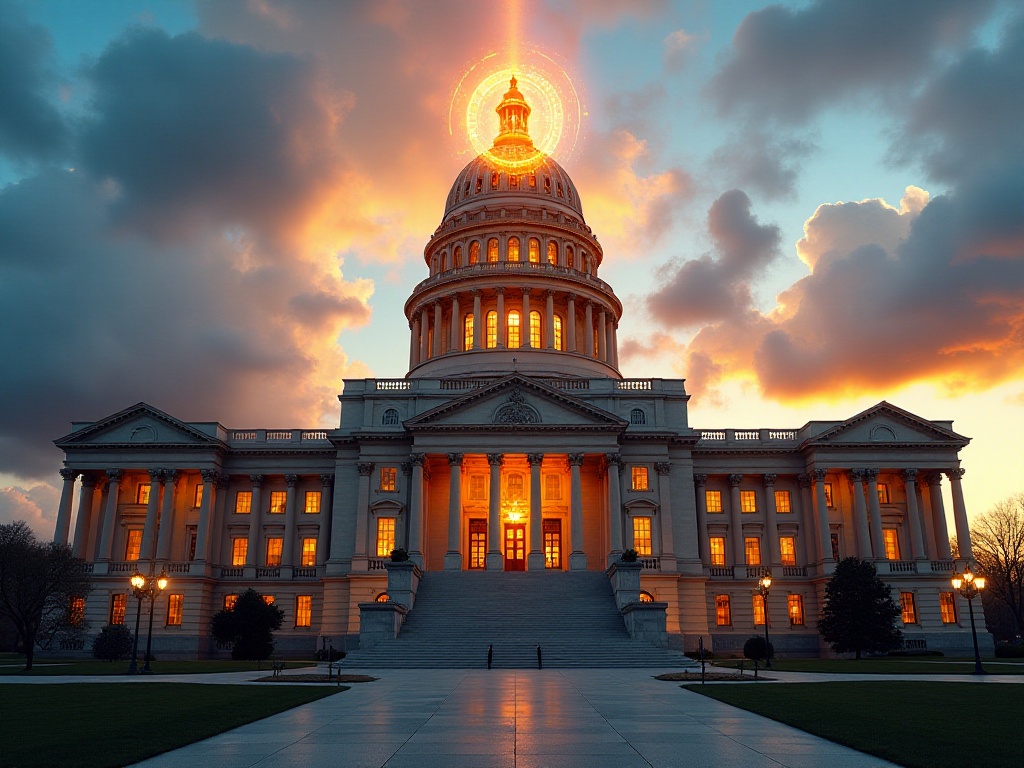How 23 States Are Pioneering the Future of Public Finance Through Crypto
Picture this: In a wood-paneled conference room in Phoenix, Arizona, lawmakers huddle around a table, debating what would have seemed unthinkable just a few years ago – whether to put 10% of the state's public funds into Bitcoin. This isn't a scene from a crypto enthusiast's dream; it's happening right now across America.
The New Gold Rush: States Leading the Crypto Charge
When cryptocurrency czar David Sacks took the podium on February 4, he didn't just drop another government acronym into the alphabet soup of financial regulation. His careful distinction between Strategic Bitcoin Reserves (SBR) and sovereign wealth funds (SWF) sparked a nationwide conversation about how states might safeguard their financial futures in an increasingly digital world.
Think of sovereign wealth funds as your grandparents' investment strategy – slow, steady, and traditional. These government-owned funds typically stick to the classics: real estate, stocks, and infrastructure. They're the financial equivalent of a well-aged whiskey, carefully preserved for future generations.
But here's where it gets interesting: 23 states have already dipped their toes into the crypto waters through various forms of digital asset legislation. It's like watching a group of traditionally conservative investors suddenly discovering they might need some tech stocks in their portfolio.

The Bitcoin Bills: A Tale of Two Approaches
Arizona and Utah are currently leading this digital gold rush, each with their own unique flavor of crypto legislation. Picture Arizona as the cautious pioneer, proposing a Bitcoin reserve fund that won't exceed 10% of public funds – and they're not going first. They're waiting for Uncle Sam to make the initial move, like a careful poker player watching the table before placing their bet.
Utah, meanwhile, is taking the "all-in" approach with digital assets. Their bill doesn't just focus on Bitcoin; it's opening the door to the entire crypto ecosystem. They're not just building a vault; they're constructing an entire digital fortress, complete with protections for self-custody and careful consideration of node operators.
Not everyone's striking gold, though. North Dakota and Wyoming have seen their Bitcoin dreams hit a legislative wall, with both HB1184 and HB201 failing to pass. But in the world of state legislation, today's failure often becomes tomorrow's breakthrough.

The Inevitable Digital Future
Remember when states debated whether to accept credit cards for government services? We're at a similar turning point with cryptocurrency. The question isn't if states will integrate Bitcoin into their financial strategies – it's when and how they'll do it.
This shift isn't just about following a trend; it's about states recognizing that the future of finance might look very different from its past. Traditional sovereign wealth funds like Alaska's Permanent Fund or Texas's Permanent School Fund have shown how states can turn natural resources into lasting wealth. Now, states are wondering if they can do the same with digital assets.
As we watch this experiment unfold, one thing is clear: the line between traditional state finance and digital assets is blurring. Whether these efforts succeed or fail, they're writing the first chapters of what could be America's next financial revolution. The digital fort knox might just be under construction, one state bill at a time.







